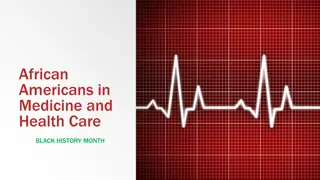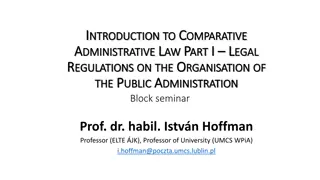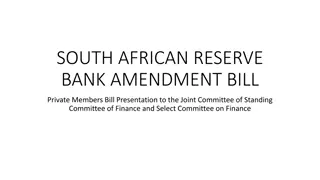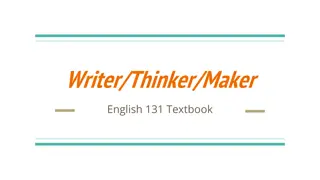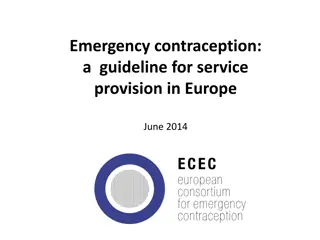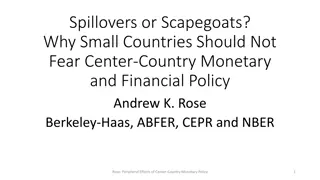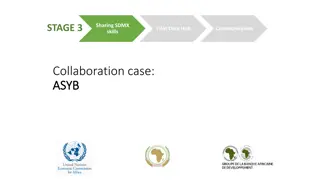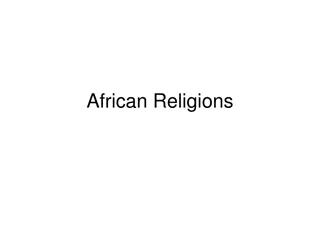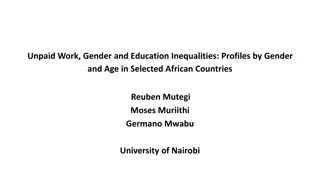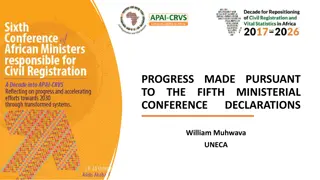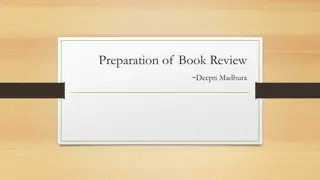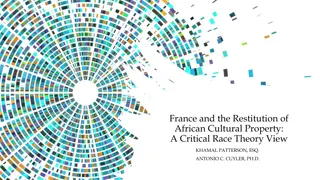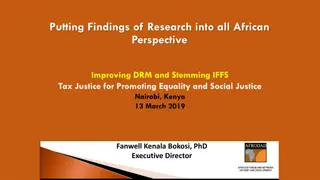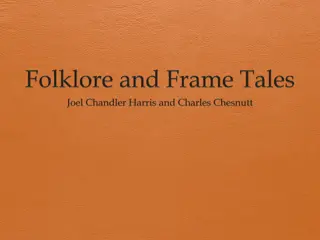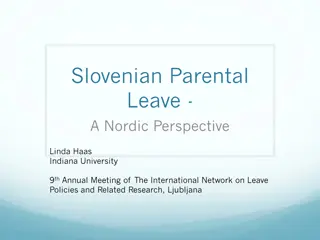Comparison of Textbook Provision Policies in African Countries
The comparison reveals variations in textbook provision policies among African countries like Liberia, Nigeria, Gambia, Uganda, Sudan, and Ethiopia. It outlines the status of textbooks being provided free or paid for by students, the ratio of textbooks per subject, financing sources, and historical trends in textbook policies in Ethiopia and Sudan.
Download Presentation

Please find below an Image/Link to download the presentation.
The content on the website is provided AS IS for your information and personal use only. It may not be sold, licensed, or shared on other websites without obtaining consent from the author. Download presentation by click this link. If you encounter any issues during the download, it is possible that the publisher has removed the file from their server.
E N D
Presentation Transcript
GROUP WORK Liberia, Nigeria, Gambia, Uganda, Sudan and Ethiopia
CURRENT STATUS OF TEXTBOOKS PROVISION POLICIES (FREE OR PAID FOR BY STUDENTS) Introduction Introduction of UPE, of UPE, led to the introduction of free textbooks policies introduction of free textbooks policies Free for Government Free for Government School Paid for by private school students Paid for by private school students Curriculum materials provided for free to Curriculum materials provided for free to schools schools in in most Countries most Countries Curriculum materials not free in Nigeria Curriculum materials not free in Nigeria for both private and public for both private and public led to the School Students Students
CURRENT STATUS OF TEXTBOOKS PROVISION RATIO FOR ALL SUBJECTS /CORE SUBJECTS All policies the same 1:1 ratio for Core All policies the same 1:1 ratio for Core Subjects Subjects and Ethiopia all subjects and Ethiopia all subjects Reality Reality: there : there is no fixed is no fixed ratio in classrooms, classrooms, ratio based on availability for ratio based on availability for core subjects except for Ethiopia (All core subjects except for Ethiopia (All subjects are provided 1:1) based on donor subjects are provided 1:1) based on donor funding funding Ratio in the classrooms Ratio in the classrooms Ranges from 1:1 10 10- -1 1 ratio in Ranges from 1:1
CURRENT STATUS OF TEXTBOOKS PROVISION FINANCING Donor Donor funding is an issue is an issue funding completely completely- - Sustainability Sustainability Both Both Government and Government and Donor Donor Government Government funding entirely (Nigeria funding entirely (Nigeria) ) Private Private financing (Parents) financing (Parents)
HISTORICAL INFORMATION Ethiopia Ethiopia: past policy favored government controlled from development to distribution and current encourages open competition, improved quality now, cost reduction based on new policy, textbook ratio has improved due to improved distribution. Distribution is handle both by Publishers and government. Sudan Sudan: : Before centralized system, Government controlled from development to distribution. Now, decentralization and open to private publishers, cost of books increased, Quality dropped, multiple providers with limited quality assurance have impacted quality
HISTORICAL INFORMATION Nigeria Nigeria: Decentralized before and now, but now more resources have led to improved quality, distribution and ratio. Uganda Uganda: Centralized system before, decentralized and now a hybrid and publishers were responsible to distribute to schools directly and now distribution points with schools coming to collect books. Liberia Liberia, Centralized system with Community and district participation in delivery and receipt.
HISTORICAL INFORMATION Learning: Learning: Uganda Uganda, books not being used; Liberia Liberia, in the past books were not used due to limited storage facilities, policy for signature, prolong rainy season and lack of teacher training. Nigeria Nigeria, learning is not really happening, the EGRA assessment revealed that, Ethiopia Ethiopia, , books are not being used in the classrooms books are kept home and there is no surety that they are used in homes. Readability level extremely low across Countries. Gambia Gambia; system in place to ensure usage through robust monitoring and supervision.
TEXTBOOK DEVELOPMENT Who writes: Who writes: publishers, (Liberia & Uganda) off shelf, Ministry Education (Gambia, Sudan), Government and private individuals (Nigeria) Are Are they written to the Curriculum they written to the Curriculum: Yes What mechanisms for quality control? What mechanisms for quality control? Quality Control: Specifications, content analysis, competitive bidding and rigorous review Criteria for selection Criteria for selection: Curriculum, book quality
TEXTBOOK DEVELOPMENT PROCUREMENT POLICIES: PROCUREMENT POLICIES: national and International competitive bidding SINGLE TEXTBOOKS OR MULTIPLE: SINGLE TEXTBOOKS OR MULTIPLE: Liberia Single Others, Multiple DISTRIBUTION: DISTRIBUTION: Through publishers, districts, states and government: Part of the procurement and separate Criteria for selection Criteria for selection: Curriculum, book quality METHODS OF ENSURING THEY REACH THE METHODS OF ENSURING THEY REACH THE SCHOOLS: SCHOOLS: Delivery notes, monitoring, triplicate delivery notes (School copy, district copy and Central Copy). Post distribution monitoring.
TEXTBOOK DEVELOPMENT: CURRENT POLICIES HOW ARE THEY STORED IN SCHOOLS HOW ARE THEY STORED IN SCHOOLS: Limited storage facilities across Countries. Nigeria Nigeria; Stored in the Chief palace, church or Mosque, Uganda, similar to Nigeria. Liberia similar to Nigeria ARE ARE THEY AVAILABLE IN THE THEY AVAILABLE IN THE Teacher Training Institutes: Training Institutes: YES Teacher
POLICY: Are policies for changes or revision aligned with Are policies for changes or revision aligned with textbooks development, procurement, changes textbooks development, procurement, changes to assessment or examination? to assessment or examination? Yes and No; it is holistic and includes the entire chain for some Countries. Ethiopia - no, Liberia- no. Sudan- no, Frequency in changes affected publishers in Nigeria.
PROPOSALS TO ADDRESS TEXTBOOKS SCARCITY: Government should ensure that textbooks are free for both private and public school students; Make textbooks available at 1:1 ratio in core subjects; Government should provide minimum 2 to 3% of the budget for textbooks provision annually; Government must ensure not just availability but usage and seek options for lower prices for sustainability; Ensure usage by opting for single titles and enhance teacher training on textbooks usage; PURCHASE IN BULK Explore inclusion of eBooks
INSTITUTIONAL MECHANISM: Strengthen procurement systems to be effective and efficient Transparency throughout the chain Good data systems to facilitates procurement Distribution and storage systems Monitoring systems Ensure knowledge sharing
CAPACITY DEVELOPMENT : Procurement capacity development Curriculum development Textbooks writing skills development Supply chain capacity development Technical capacity support in curriculum and textbooks development
OBSTACLES: Government support Community participation Donor commitment HUMAN RESOURCES Technical expertise in M&E, education planning, procurement, Supply chain, teachers PROS AND CONS:
Ensure transpare ncy Ensure competition Affordable Textbooks for All Ensure national developm ent Improve delivery Lower Cost
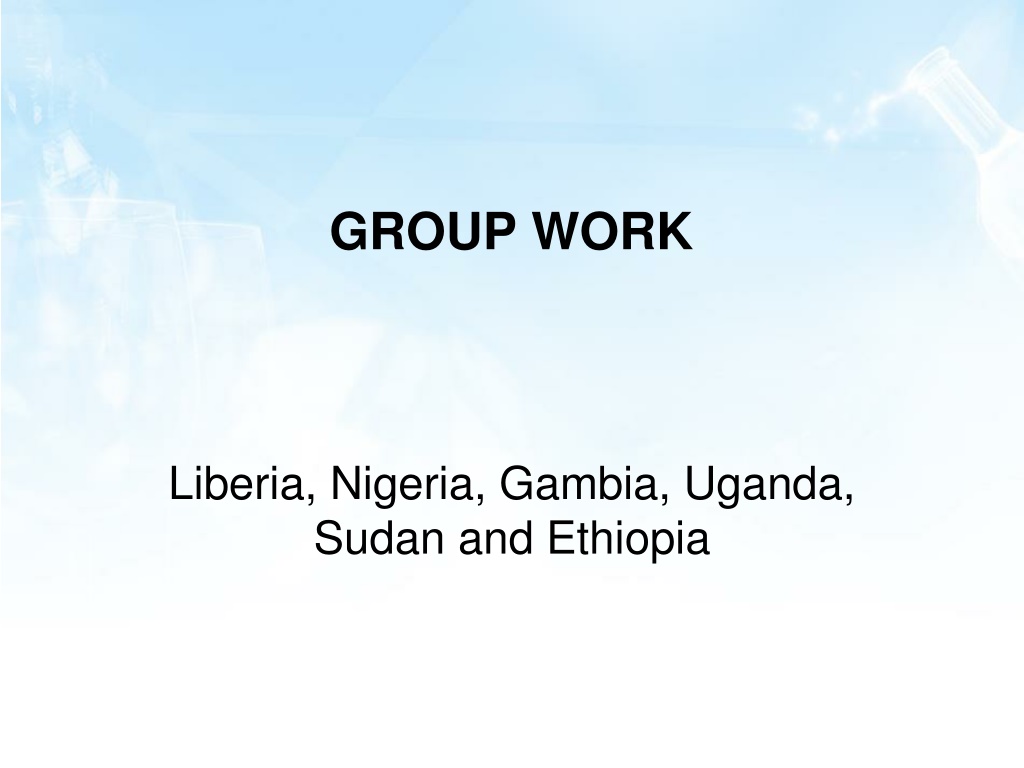
 undefined
undefined







